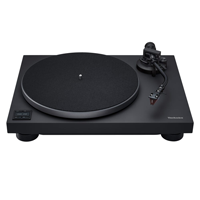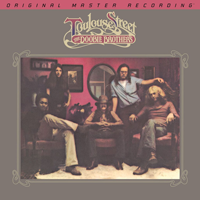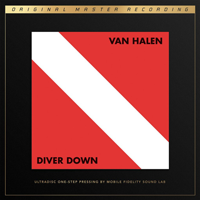Next week brings a host of celebratory events. For lovers, there's Valentine's Day. But Mardi Gras arrives a day earlier and cares not for one's relationship status. An observation of excess that occurs before seasonal fasting, the carnival-like revelries of New Orleans' take on Mardi Gras spill over with food, drink, and music. We'll zero in on the latter, as NOLA has forever been a hotbed of American sounds and testament to diversity. Here, we choose five of our favorite New Orleans-rooted albums.
The Meters, The Meters
In the late 1960s, the Meters were so serious about funk that the band couldn't be bothered with vocals. The collective of soon-to-be heavyweights was too busy laying the foundation for a genre – one that on its 1969 self-titled debut emphasizes the groove and a borderless approach to boundaries. No surprise, as New Orleans' reputation as a multicultural hub made it a prime breeding ground for the group's seriously laid-back mix of R&B, jazz, rock, and whatever else caught its members' fancy. It all feels representative of the city, from Ziggy Modeliste's convoluted rhythms on "Cissy Strut" to Art Neville's parade-ready organ on "Live Wire" to Leo Nocentelli's saucy guitar on "Ease Back," which sways side-to-side like the tail of a confident alley cat.
Allen Toussaint, Southern Nights
Understated, low-key, and a masterful behind-the-scenes player, Allen Toussaint, who died in 2015 while on tour, touched the careers of many a musician – from the Meters to Paul McCartney to LaBelle to Elvis Costello. A piano virtuoso, Toussaint was also an ace producer and notable arranger. The title track of his 1975 album, for instance, became a hit for crooner Glen Campbell when the latter gave it a bouncy interpretation. But it really endures as a showcase on an album now regarded as one of Toussaint's masterpieces – and an expansive collection that worms its way through New Orleans neighborhoods. Toussaint's own rendition of "Southern Nights" is trippy, swampy, and a bit mystical, while tracks such as "Last Train" and "Country John" illuminate city personalities and places with expressive instrumentation. Throughout, horn sections seem to be in conversation with the headliner; Toussaint's piano is often melodic and always animated. The R&B-based sound reflects a locale in which music is just one of many characters.
Dr. John, Locked Down
Dr. John has been churning out albums since the 1960s, so it's hard to know where to begin with the colorful piano wizard. His theatrical stylings and obsession with all things voodoo make him a Mardi Gras requirement. Yet prior to releasing this 2012 album, he was starting to feel like a tourist attraction – an artist so steeped in New Orleans lore that he began to feel weighed down by it. On Locked Down, Dr. John presides over a scorching-hot collection that places his swampy mix of blues, funk, and soul through a deep-friend electric keyboard. The songs are hefty in their density and showcase Dr. John at his trippy best. Produced by the Black Keys' Dan Auerbach, Locked Down teems with oddities. Take the cabaret vamp of "Big Shot," which boasts a soggy groove that saunters like an alligator through the bayou, or the feisty "Revolution," which cedes the spotlight to a spooky, spirited horn section.
Trombone Shorty, Backatown
Keeping a list of crucial New Orleans albums down to a total five is criminal. How, for instance, to deal with the city's jazz greats? The likes of Louis Armstrong, Fats Domino, Jelly Roll Morton, King Oliver, and more all warrant entries, as so much of jazz – and, in turn, American music – is defined by New Orleans. So we're taking the easy way out, and highlighting one of the style's modern inheritors. Trombone Shorty records don't quite match the intensity of his live performances. But if you want music fit for a parade, this is it. Emanating from a region known for mixing and matching styles, Trombone Shorty (real name Troy Andrews) brings rock n' roll force to the city's anything-goes approach to jazz. Aggressive, and full of call-and-response jubilation, 2010's Backatown comes across as the sound of a city fighting back after the horrors of Hurricane Katrina.
Irma Thomas, The Soul Queen of New Orleans
Before turning 20, Irma Thomas had accumulated a lifetime of stories. She already had been married twice and had four children. Yet if any of the trials caused consternation for the former waitress, one wouldn't necessarily know it by listening to her songs. Throughout her five-decade-plus career, Thomas, who worked regularly with Toussaint, emphasized elegance, refinement, and hope. Her approach to soul excavates the optimism in the lyrics. In turn, her material seems as ornate as the latticework on a New Orleans fence, her attitude a glass-half-full approach wherein music becomes one of the finer things in life. Not to say Thomas is all bliss – listen to her serious readings of "Cry On" and "It's Raining" – but her steady, smooth vocal phrasings convey a resoluteness that remains inspiring to this day.
Photo credit: Michael Wilson
9th Feb 2018



































